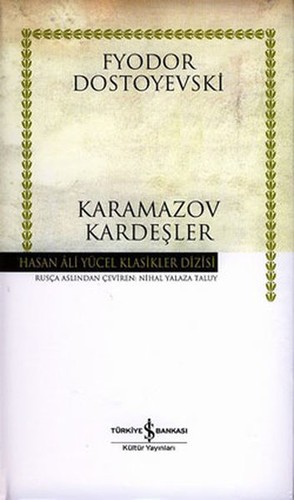Dee hat The Brothers Karamazov von Fyodor Dostoevsky besprochen
5/5
5 Sterne
Uncertain where to start with this one. I could copy paste a synopsis of the Book of Job and then claim the bible would have been better if written by Dostoevsky, but perhaps I shall instead attempt a review (except really it is an informal microessay on his reused themes…..)
This is one of the few books left in the ‘vesky corpus as first reads… I do not enjoy this fact and have been rereading each chapter of this for months and have morphed into the Pepe Silvia image.
In a way, this book was a quilt of the major themes of most of Dostoevsky’s preceding works—amplified. Childhood feels more potent a theme here than in ‘A Raw Youth/The Adolescent,’ which itself continued on from Dostoevsky’s experimentation with this in demons and Stavrogin’s upbringing—i.e., the Q of what shapes a man’s morals before he can even be considered …
Uncertain where to start with this one. I could copy paste a synopsis of the Book of Job and then claim the bible would have been better if written by Dostoevsky, but perhaps I shall instead attempt a review (except really it is an informal microessay on his reused themes…..)
This is one of the few books left in the ‘vesky corpus as first reads… I do not enjoy this fact and have been rereading each chapter of this for months and have morphed into the Pepe Silvia image.
In a way, this book was a quilt of the major themes of most of Dostoevsky’s preceding works—amplified. Childhood feels more potent a theme here than in ‘A Raw Youth/The Adolescent,’ which itself continued on from Dostoevsky’s experimentation with this in demons and Stavrogin’s upbringing—i.e., the Q of what shapes a man’s morals before he can even be considered a man? The Demons parallels extend to Kolya’s relationship with God, a relationship which only reads as a better developed version of Shatov’s relationship with God…
My favourite parallel, however, is the reappearance of idolatrous relationships like the one seen between Kolya and Alyosha, which mirrors Verkhovensky and Stavrogin to the extent I had to double check I was reading the right book.
“Hurrah! You are a prophet. Oh, we shall get on together, Karamazov! What delights me most is that you treat me quite like an equal. We aren’t equals, you are better! But we shall get on. All this last month, I’ve been saying to myself, ‘Either we shall be friends at once, forever, or we shall part enemies to the grave!” (TBK)
“…They just don’t love idols, but I love an idol! You are my idol! You insult no one, yet everyone hates you; you have the air of being everyone’s equal, yet everyone is afraid of you—this is good…You are precisely what’s needed. I, I need precisely such a man as you. I know no one but you. You are a leader, you are a sun, and I am your worm…” (Demons)
He has this tendency (and unmatched execution) to embody ideologies into characters who are worshipped by his weaker, more meek archetypes that appear in almost every major piece of his. In the end, meek or assertive everyone loses themselves for an idea (Adolescent, Demons, TBK…).
Oh and not to mention the reemergence of brain fevers (Stavrogin - Demoms / Ivan - TBK).



